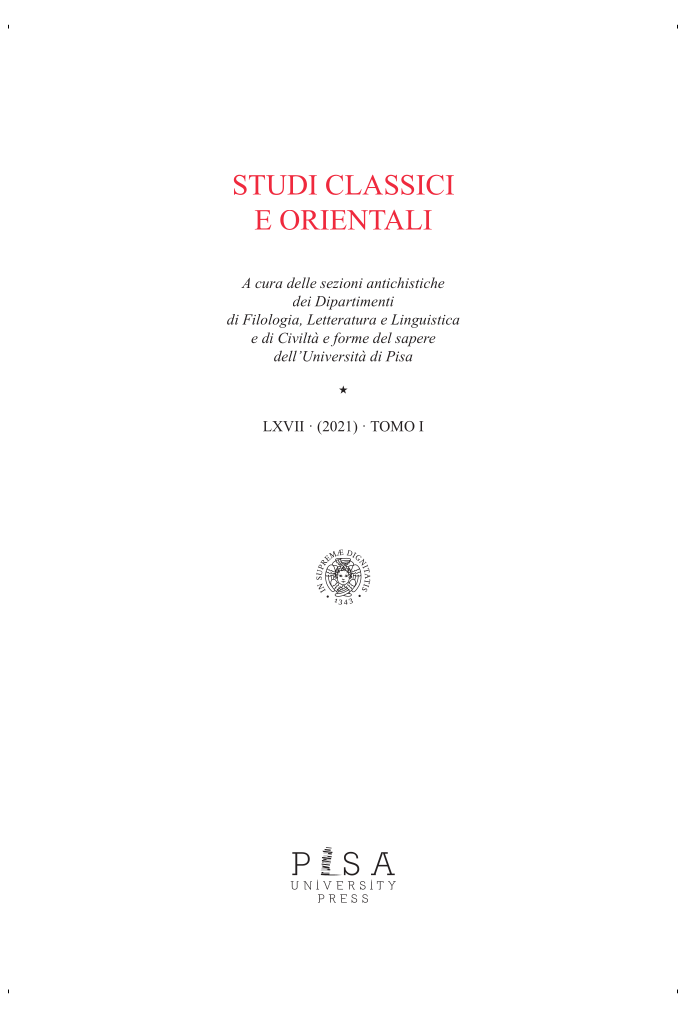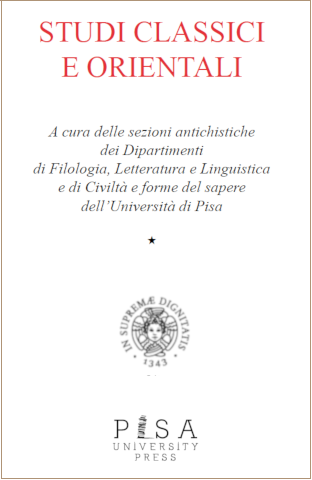Metalanguage and substitution in late-Vedic linguistic thought
Parole chiave:
Metalanguage, Autonymy, Pāṇini, Bhartṛhari, SubstitutionAbstract
Undoubtedly, the use of a substitution-paradigm to interpret the mechanism of signification has been characteristic of many cultural traditions over the centuries. Rarely, however, has it taken on the dimensions that we recognize in the late-Vedic period, in which it stands as a global heuristic paradigm that permeates the whole creation and transmission of culture in the Indian sub-continent. The article questions the role of this cultural specific background in the development of metalinguistic thought. Three crucial steps are taken into account, namely the grammarians and philosophers Pāṇini (ca V/ IV BC), Patañjali (II BC) and Bhartṛhari (V AD). The crucial role of the substitution- frame emerges quite clearly in the paradigmatic shift between the two authors, the first still thinking within a substitution frame while the latter reasons in a compositional one. Bhartṛhari, on the other hand, proves, also on this subject, that he is a brilliant restorer of the late-Vedic linguistic thought; an element that should be taken more into account in the global interpretation of this great philosopher.



